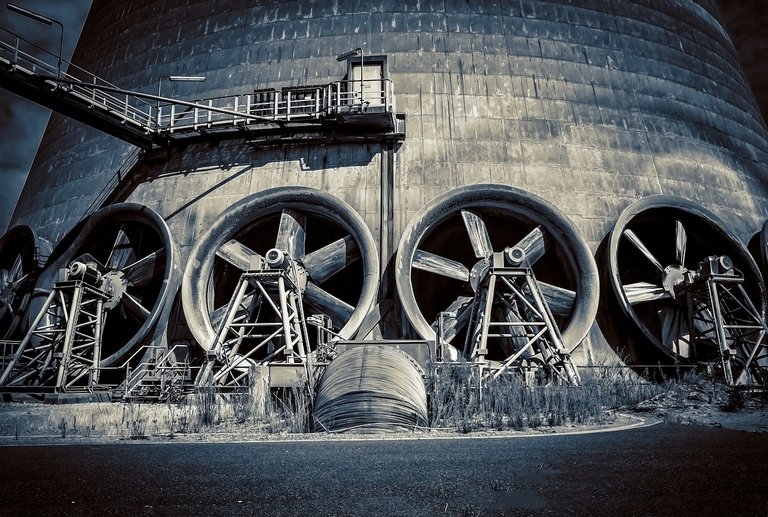Transforming Nigeria: The rise of industrialization
This entry was inspired by the #inleo community and my response to the day 4 of the #novemberinleo prompt.
The Industrial Revolution brought big changes to societies around the world, and Nigeria, although impacted later than other parts of the world, felt its effects strongly. The transformation to machine-based production and the rise of factories and industries gradually shaped Nigeria’s economy, social life, and even education.

Before the influence of industrialization, most Nigerians worked as farmers or craftsmen, creating items by hand or using simple tools. In villages people would weave cloth or wood carve or make pottery and these crafts would be passed down from generation to generation. Farming was a primary way of life, as Nigeria is rich in land and agriculture. But through trade and colonial influence, industrialization slowly spread, and eventually, changes came. Around this time Nigeria started to change from locally made products to imported products made in big factories. That transition brought about some good and some bad to the Nigerian society.

One major impact was in Nigeria’s economy. After the Industrial Revolution had transformed the way in which goods were produced around the world, foreign industries turned their eyes to Nigeria for its raw materials. Britain and other Europeans came to Nigeria and saw it as a place to exploit for its palm oil, cocoa, rubber, and cotton, all of which were raw materials for their factories back in their homelands. So, a lot of Nigerians had to turn to growing these cash crops, for export, rather than food crops. This did spread some wealth to the local communities, however it also made Nigeria dependant on exporting.
Industrialization also changed the type of work people did. As foreign companies and later Nigerian industries set up factories and processing plants, more people moved from rural areas to cities to work in these new jobs. This was the start of Nigeria’s urbanization. Cities such as Lagos, Ibadan, and Kano began to develop into commercial and labor centers. However, this rapid movement to cities caused some problems. Like in most countries urban areas became overpopulated and people lived in poor conditions. Housing was often not enough for everyone, and some families lived in cramped areas with limited clean water and sanitation, leading to health issues.
Education in Nigeria also changed as industrialization spread. Back then, education wasn't really formal, but it was more of skills and traditions. However, the demand for more individuals qualified for industrial type jobs and for managing businesses gave rise to the pressure of formal schooling. Missionary schools and government schools taught basic subjects like reading and writing, preparing young people for work in offices and industries. As time progressed, education became more and more recognized in Nigeria and schools sprang up everywhere so people could acquire the skills they needed for jobs in this modern world.
Industrialization also brought new transportation systems to Nigeria. Roads, railroads, and docks were constructed in order to facilitate the transportation of raw materials and finished products more efficiently. The railway system, for example, allowed people to travel from the north to the south more easily. These developments facilitated the link between different parts of Nigeria, which made trade and communication easier.
Nigeria has experienced some industrial growth in the last few years mainly in the areas of manufacturing, telecommunications, and oil production. Industrialization has produced great wealth and jobs for some, however problems still arise, for example, pollution, unequal distribution of wealth, and dependence on oil exports. Industrialization has brought Nigeria a mix of progress and challenges, shaping the lives of its people in many ways.
Today, we can see the impact of the Industrial Revolution in Nigeria’s cities, schools, transportation, and economy. It has caused a great amount of change, but has also left Nigeria with much room for improvement, whether it be in the form of better working conditions, or free education. Nigeria is still feeling the effects of the Industrial Revolution as it is a developing country trying to modernize.
Source 1
Source 2
Posted Using InLeo Alpha
The revolution of industries has truly done more good than harm to the larger society.
Thank you for sharing, I had a good read.
That's true but what about the harm it does to the earth
I shared few in my post here
https://peakd.com/hive-186119/@medemausi/industrializations-paradox-economic-growth-and-social-inequality--av8
I'll check it out
Thank you